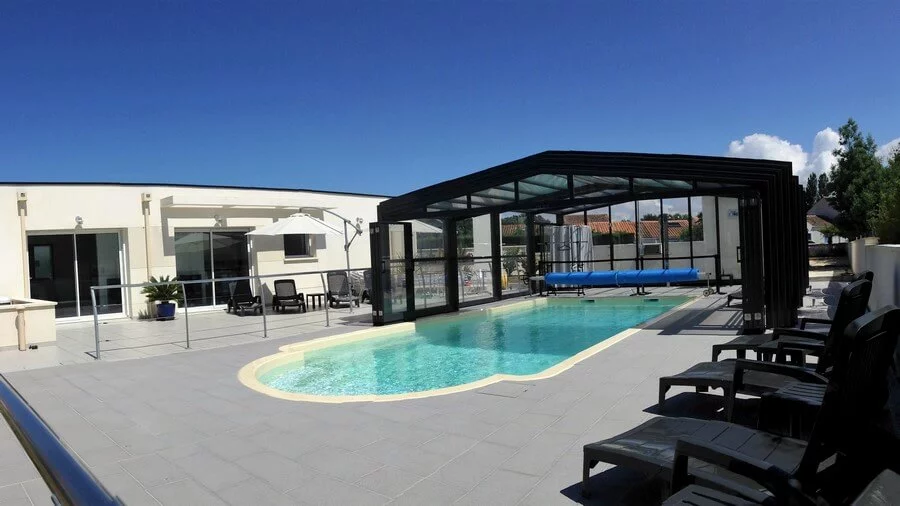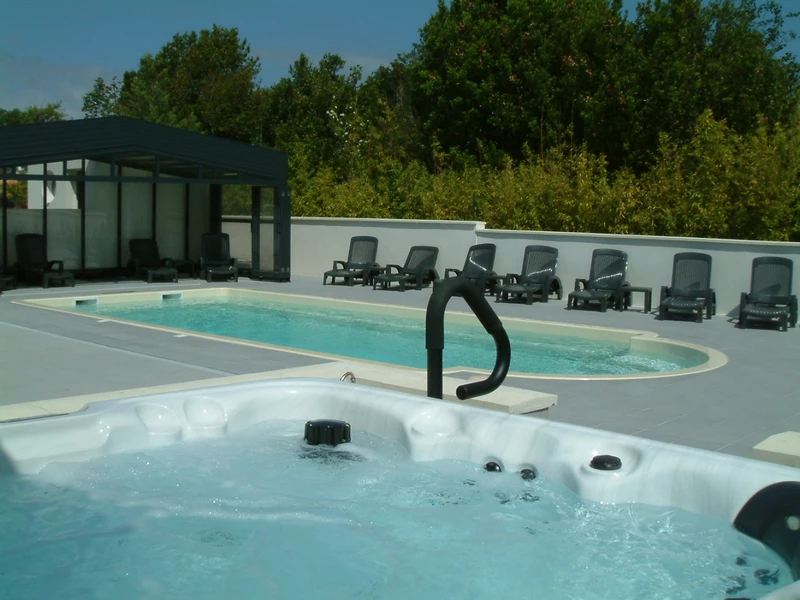Not so obvious, the right answer will be counter-intuitive!
Private pool or shared pool, the most important thing is the quality of the water in your pool or whirlpool!
The private swimming pool or whirlpool of a holiday rental (house, gite,..) is considered for sanitary reasons by the ARS as a shared swimming pool or whirlpool (shared in time between successive tenants)
Maintaining the level of bathing water quality defined by the ARS involves a time-consuming and costly process. An owner of a house with a private swimming pool will find it difficult to comply with this requirement day after day, with the risk of water quality drift.
Pooling this time and cost over several houses is a solution. This makes it easier for the shared pool to have bathing water that meets the requirements of the ARS.
Excessive pooling (large numbers of bathers sharing the pool) will make it more difficult to maintain water quality. As with everything, you have to find the right balance.
In May 2021, new decrees and orders were published in the Journal Officiel setting out the general legal framework for swimming pool water in the Public Health Code. These legal texts are applicable from 1 January 2022.
This framework clarifies the competences and responsibilities between ARS and the persons responsible for the pools as soon as these pools are shared over time with other persons.
The classification of swimming pools into 4 classes according to the theoretical maximum attendance (defined by the surface of the water body and whether it is covered or not), makes it possible to adapt the frequency of sanitary control or surveillance according to the risks linked to the quality of the water in the swimming pools and the difficulty of maintaining the minimum level of quality required for all swimming pools.
The results of these checks are displayed in the pool and/or whirlpool premises.
Regardless of the classification of the pool, the person responsible for the pool must keep an up-to-date health record for the pool and/or whirlpool. In this health logbook, the values of the physico-chemical parameters and information on the number of people using the pool and the technical interventions carried out must be recorded at least twice a day. The person responsible for the pool must also have defined the procedures for managing water quality. The health book and management procedures are kept at the disposal of the ARS.
Swimming pools and whirlpools are now equipped with automatic dosing systems for physical and chemical parameters. However, the water quality results must be checked daily with independent equipment, in order to correct any drifts in the installation and also to carry out additional measurements that are not automated at present. All of this is recorded in the baths' sanitary booklet.
The implementation of these provisions represents a significant but necessary workload to achieve good water quality for swimming pools and whirlpools.
For guests, it is essential to keep this sanitation booklet up to date, as it means that the accommodation you have chosen is keeping a daily eye on the quality of the water you are about to enter.
On the other hand, the quality of the water depends very much on the attention that bathers pay to the respect of sanitary instructions. For example, an establishment or location where the mandatory soapy shower before bathing is not respected will not be able to maintain an acceptable water quality for the whirlpool.
A pool without regulations will inevitably lead to poor water quality.
The pleasure of bathing is also to be able to enjoy it in complete safety!
As everyone is free to make their own choices, we recommend in conclusion that everyone chooses the establishment with the approach to water quality that suits them and that will be in line with the level of health precautions they wish to respect for themselves and for others.

